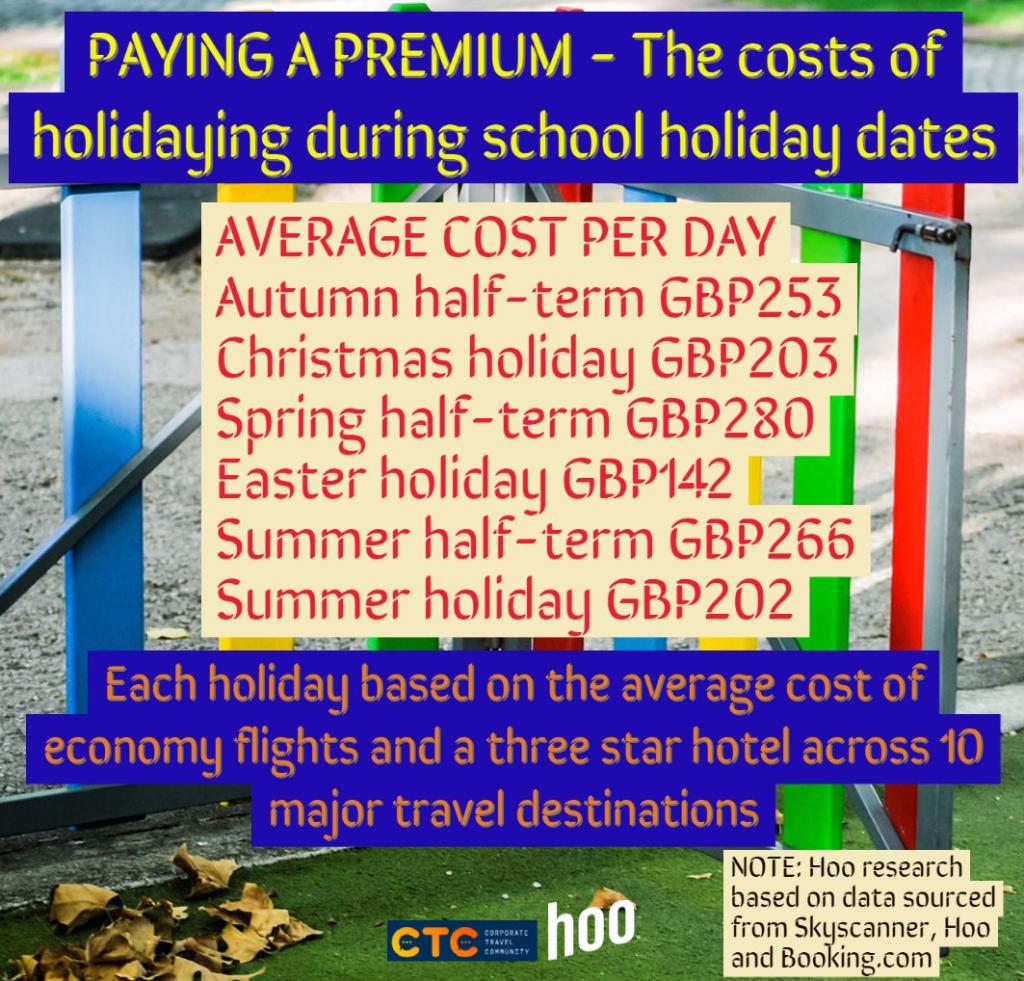It is all a simple case of economics and supply and demand. With financial penalties and other preventative measures in place for parents if they choose to remove children from their studies during term time it means there are obvious spikes in demand during non-school dates. In these periods more people want to get away placing huge demand on airlines and hotels.
There is reduced capacity and higher demand so prices naturally rise. In some cases research has shown that air fares could be as high as nine times the price with holidays around three to four times the cost between weeks within the school holidays and inside term time.
The travel and tourism industry has been left severely wounded by the COVID-19 pandemic. The World Travel & Tourism Council's annual Economic Impact Report (EIR) reveals the sector last year recorded a massive loss of almost USD4.5 trillion. The annual report shows the sector's contribution to GDP dropped a staggering -49.1%, this compared to the overall global economy which dropped by just -3.7% last year.
While many deals will help to get people travelling again - when it is safe to do so - companies throughout the sector - including airlines, hotels, rideshare companies even experience providers - will want to maximise returns in this lucrative area.
Matching supply to demand will be even harder in 2021 than any previous year and there will be a reluctance to flood the market with capacity. Airlines and hotels will want to keep prices as high as possible enjoying any premium from pent up demand and making consumers pay for the privilege of escaping from their homes.
It is hard to predict what - if any - summer 2021 demand there will be in the northern hemisphere this year. While countries like the UK, Israel and Seychelles have been among the frontrunners with vaccine programmes, other countries are still a long way behind. In international travel terms you are only as successful as your neighbour and this will continue to inhibit travel options much longer into the year.
International travel will still heavily restricted, but domestic demand will replace this in some measure and we will likely see those school holiday travel trends remain in place for internal travellers. This is valid for any country market, but here we consider the United Kingdom, where hotel room offer platform Hoo has completed some investigations into the price families are forced to pay to travel during school holiday dates.

Interestingly, the spring half-term (normally in mid-Feb) was found to be the most expensive school holiday to take a trip away while Easter (between late-Mar and mid-Apr) ranks as the most affordable when looking at the cost on a per day basis.
Using its own, and data sourced from Booking.com and Skyscanner, Hoo looked at the cost of heading away to 10 major holiday destinations based on the price of return flights and accommodation, as well as how this differed across each half-term based on a five-day trip and a 14 day stay during the longer Easter, Christmas and summer holidays.
Looking at these at the average cost per day basis the spring half-term worked out at a cost of GBP280 per day, while both the summer half-term (late-May or early-Jun) at GBP266 and the autumn half-term (mid-to-late-Oct) at GBP253 also ranked in the top three most expensive school holidays. The longer end of term breaks came in considerably cheaper at GBP142 per day for Easter and GBP202 and GBP203 for the summer and Christmas holidays.
This week will see many school's commence Easter holiday breaks, but government mobility restrictions and border closures mean both domestic and international travel will remain limited. By the summer there is a chance that the doors to travel will start to open, but don't expect to get a bargain as every dollar, pound, yen, euro, yuan, franc, krona, peso, lira, rupee, rand, real, baht or ringgit will be essential to the future of the travel and tourism industry.